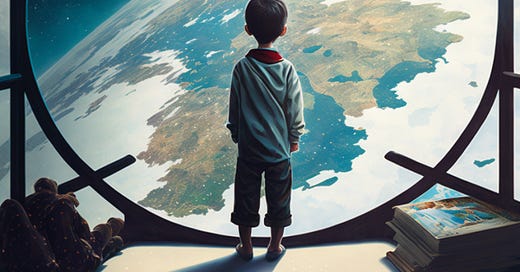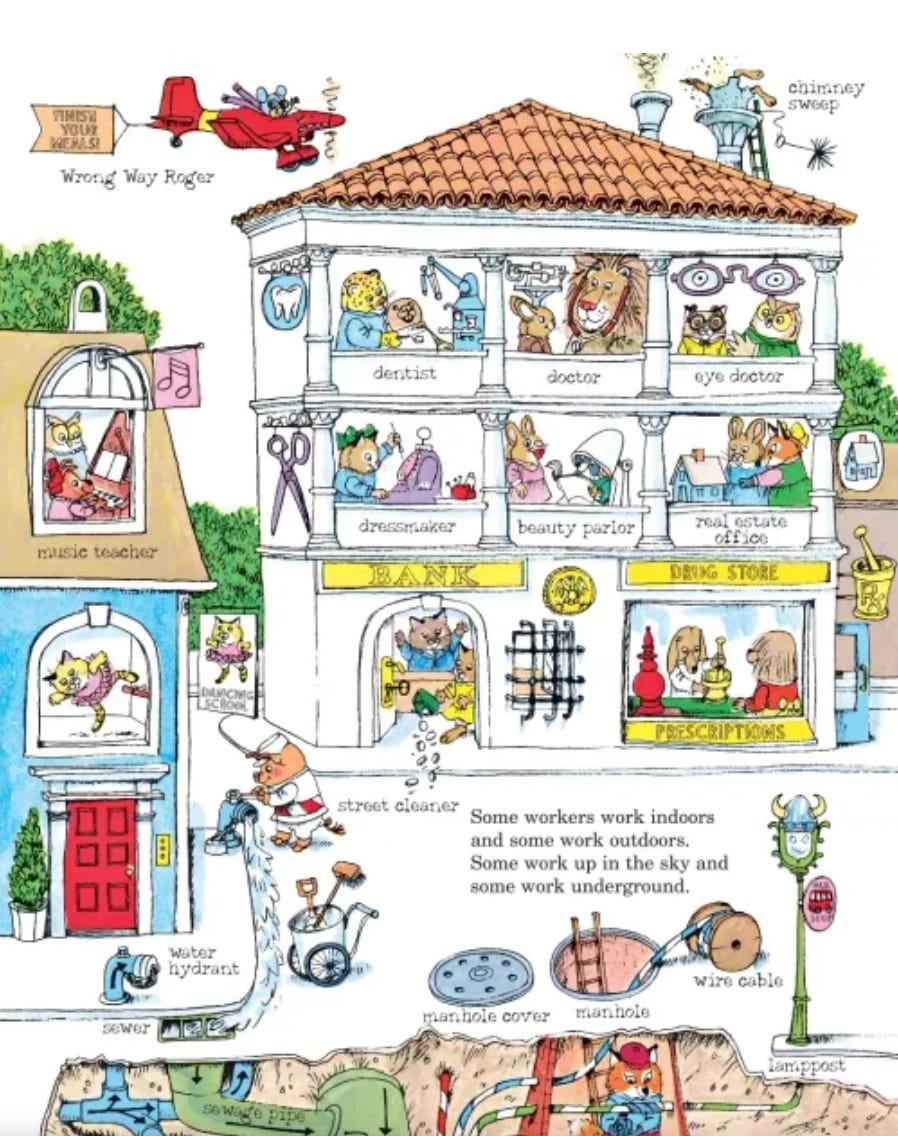Hello! I'm David Gasca and this is Mystical Silicon, a weekly newsletter on mindfulness, how to make the world more alive, and a variety of other things I find interesting.
“Oh, wonder! How many goodly creatures are there here! How beauteous [AI-kind] is! O brave new world, that has such [machines] in ‘t!” - modified quote from The Tempest
Imagine this: one day, a teenage girl stares into her laptop late at night. After tinkering for a few months, she has finally come upon some code that she believes will be a hit. Building off a number of new AI advances, together with her team of friends she’s stitched together a novel program that provides people a new way to make money from their homes. After working assiduously, she finally launches the app and heads to sleep… A few days later, through a combination of incredible timing and amazing product, her app is quickly rising on the App Store charts and she is well on her way to becoming extremely rich. A few months later, her company is worth hundreds of millions of dollars. A few years later, billions of dollars.
Software makes it possible to turn ideas into world-changing reality at a rate that would have been inconceivable at any time in past human history.
WhatsApp was acquired for $19 billion and there were 55 people working on it at the time. Go back just a few decades and this would seem preposterous. Go back 100 years and it would be incomprehensible.
The combinations of technologies that allow this to happen are nothing short of miraculous. These changes have also happened at such a rate that the stories we tell our kids about how the world works, have not had a chance to catch up. Writing at the end of 2022, it’s about to get a whole lot worse.
There is a children’s book written by Richard Scarry about the things people do every day for work. “What do people do all day?” was written in 1968 but generally it hasn’t changed that much compared to what we teach our kids in school. There is the baker that bakes bread for a living. The firefighter that saves people from fires. The banker that runs the bank, and on it goes. These professions are canonical and they have a close association between action & reward — if the firefighter fights more fires, they get more money. The baker’s earnings are mostly proportional to the bread baked, etc.
Software, on the other hand, makes all of this go haywire. Output is completely uncorrelated with effort. Certain pieces of software make enormous amounts of money (trillions of dollars) and the value is not at all correlated with time invested. [Sidenote: I wrote more about the oddities of “value” in On Millions dollar cats.]
This lack of correlation between action:reward isn’t unique to software – it also applies to ideas more broadly. Fundamentally, ideas have been able to spread and have value in and of themselves. A writer or director or artist has always operated in a version of this world. Investors have too. However, software has taken this further in allowing these professions (and so many others) to expand exponentially in their reach.
As pmarca famously quipped, software is eating the world. With AI, however, this has now gone on turbo.
It’s hard not to feel particularly reflective about software’s disruptive potential this week. I’m writing a few days after the new Chatgpt model was launched. For those of you that don’t know, Chatgpt is OpenAI’s new interface for using its underlying GPT3.5 large language model. Pretend you had a chat agent that could answer or make anything you wanted - that’s Chatgpt. (You can play around with it here).
Going back to Richard Scarry, what is the new children’s book we should write about “what people do all day?” How should this be updated for the present but more importantly, for the future?
While the technology is changing fast enough to make everything outdated, a few themes emerge for me from Generative AI. Some skills with high premiums given the coming AI revolution include:
Asking great questions
Thinking about creative ways of combining things (e.g., lateral thinking and improv ftw!)
Superficial knowledge of tons of things (e.g., broad knowledge of art history, history, literature, science)
Getting agents / software to do things you want (e.g., getting good at bossing agents around)
Stitching together divergent areas of knowledge (e.g., text -> image -> software -> business -> research)
Learning how to daisy-chain technologies (e.g., Factorio++)
Rallying groups of humans and machines to get things done (i.e. high premium on leadership, especially for small, scrappy teams)
Becoming a fantastic editor (e.g., learning logic and code so that you can debug and edit machine output)
Self-motivation and discipline to be your own boss
AI assisted Auto-didacticism (to be able to teach yourself anything)
What areas are less valuable? I would include any knowledge acquisition that can be done better by AI, writing “formalese”, and anything that feels like doing “busy work.”
When I compare these two lists to most education systems I find there is a pretty big gap… So big in fact, that it makes me worry about what my kids will learn in school the coming years.
In case it’s not clear, ultimately I am an optimist for most of the coming AI revolution. I wrote more about it more in The Secret of our Success (as humans) and On extending human understanding of animal sensory worlds through AI. That said, I can’t help but feel that at some point the education systems will have to start to adapt. It’s probably time to write a new book...
To quote the epigraph: “Oh, wonder! How many goodly creatures are there here! How beauteous [AI-kind] is! O brave new world, that has such [machines] in ‘t!”
Oh brave new world!







I couldn’t agree more with the list of skills you’ve listed. These skills are unfortunately considered contrarian in the current cultural climate. It also only seems to be present in small clusters on the internet and I personally haven’t experienced much of it in academia OR the workforce.
For those who want to create content, it is NOT a saturated topic
Another thought-provoking blog! Thank you. I appreciate your positive undertone, which always results in some form of inspiration after reading your blogs.